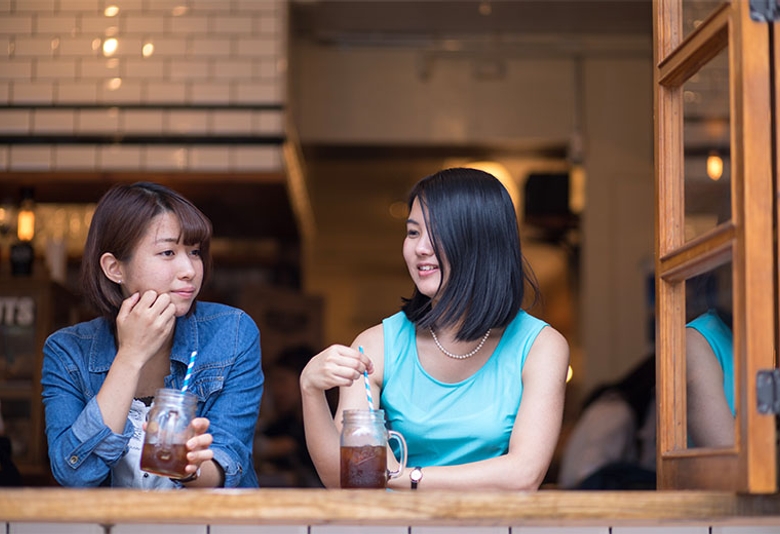Growing up in Japan, Kazuko Fukuda knew only about pills and condoms as options for birth control. So when, as an exchange student in Sweden, she walked into a youth clinic, she was surprised to learn about a dozen other methods such as implants, rings and patches.
This moment stuck with her and when she moved back to her country, she looked up these new options only to learn they are not approved for use and are not available. And so Nandenaino – a Japanese sexual and reproductive health and rights’ (SRHR) organization – was born.
Safe sex in Japan
The term Nandenaino means “why don’t we have?” in Japanese – a phrase vague enough to not hurt the local sensibilities but still asking the right question. Fukuda started Nandenaino as a hashtag in 2018, after she returned from her exchange year in Sweden; an experience which made her realize how far behind Japan is when it comes to sexual health.
She kickstarted this project with pretty straightforward demands: comprehensive sex education, a wider variety of modern contraceptives at affordable price, youth-friendly sexual health services and access to the abortion pill.
“There were two moments which moved me to do what I am doing right now. First was my visit to the youth clinic, which was exclusively dedicated for people between the ages of 13 and 25 years, staffed with a gynecologist, midwife, psychologist and counselors. That is where I learned there is more to birth control than just pills,” she recalls.
The second moment was when Fukuda saw emergency contraception pills (ECP) at a pharmacy in Sweden. “In Japan, ECP is hard to find. It requires a visit to the doctor, needs a prescription and is worth 100 USD per dose; sometimes even 200 USD. Whereas in Sweden, it is available in pharmacies and costs as low as 10 USD; and is free for young people at youth clinics,” Fukuda shares.
Hurdles and roadblocks
Price is a barrier in Japan even for the normal birth control pills. They cost 20 USD per month and are not covered by the public health insurance. “With the first visit fee, the usual blood test and the common 3-month bundle for pills, the total cost comes around 100 USD. It is not affordable for young people,” Fukuda emphasizes.
But choice, availability and affordability are not the only challenges in Japan. According to Fukuda, sex is a taboo topic and this mindset affects all aspects of life. “In Japan, it is not common for a young girl to go to a gynecologist because people associate such places with pregnancy. If you go there as a high school student, you will be stigmatized,” she states.
Further, Fukuda says, some clinics also ask for parent’s permission if you’re a teenager or under 18, while others ask you to sign a document with statements like: I understand this is something for an emergency and I will try not to use it again. “We sign this document and we easily internalize the stigma,” she argues.
Contraception use
Given these restrictions, Fukuda shares, a very low number of women use contraception; for example only 3% to 4% of women take the pill. This makes external condoms the most common method of birth control.
“However, with no awareness about how to use condoms and expensive ECP, you can imagine how frustrating and hard it is to protect yourself, especially for young people,” she insists.
Sex education
Knowledge is another problem. Fukuda says there’s no easy-to-read information from the government or other reliable organizations. “There are websites about contraceptives but the most popular ones belong to commercial brands and they don’t provide information about sexual health, violence and consent. Then there are also some unhelpful, smaller websites. This leaves women confused and suspicious,” Fukuda reckons.
When people do have access to sex education, like in some high schools, the information is not balanced. “One educational chart explaining condoms and pills says condoms are widely available while pills are not and that they are expensive; it also says condoms have no side effects but shows a list of side effects for the pill – discouraging information which scares the girls and conditions them to not want it,” Fukuda explains.
Pills and patriarchy
In case a woman does plan to use contraception, as a strongly patriarchal society, men have a huge say in it. “I have heard of instances when a woman is recommended to use a certain contraceptive method, she seeks her boyfriend’s approval and uses it only when he says yes; some start using a method because the boyfriend suggested it based on his experience with his ex. And there are also cases where the boyfriend suggests contraception for women as a backup to condoms,” Fukuda shares.
She, however, adds there are also couples where men don’t interfere in how women choose to protect themselves.
Support system
Given these limitations, Fukuda recommends women using contraception to find themselves a reliable gynecologist. “It’s nice to have someone you trust once you start using the pill because it’s easier to ask for help. But if you have a bad experience, don’t internalize anything and look for someone else,” she stresses.
Fukuda also urges people to recognize contraception as a human right. “This is very important. If treated as an additional service, it is seen as facilitating more sex or sex with multiple partners,” she asserts, inviting people to sign two important petitions: easy access to modern contraceptives and emergency contraception pills.
She adds that information and education are the only options to make this right. “Please inform yourself, not through porn but through science and research,” Fukuda requests.
This is Part I of a two-part series about contraception use in Japan. You can read Part II here.
Do you have something to share? Leave your comments below, contact us on our social media platforms: Facebook, Instagram and Twitter or send us an email to info@findmymethod.org. For more information on contraception, visit findmymethod.org
About the author: Cecilia is passionate about sexual and reproductive rights, and works as the Program Manager for Find My Method.



